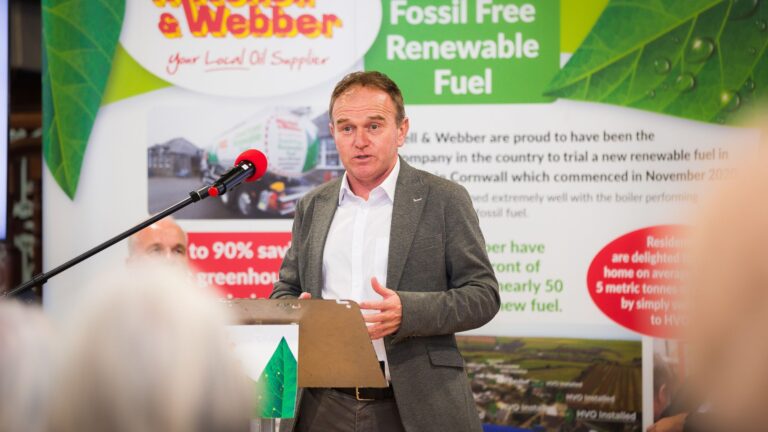
The answers were revealing. In partnership with UKIFDA, we captured both quantitative and qualitative insights from over 100 respondents, supported by in-depth interviews with six senior voices in the liquid fuel distribution sector. This is the first in a series of articles where we reflect on where the industry stood, where it is now, where it needs to go, and how we get there – together.
This first piece draws a line in the sand.
The broad agenda? Agreed. The path? Not clear.
There was little dispute among respondents about the importance of addressing climate change. Most agreed it is a significant global threat and that transitioning to lower-carbon fuels is a “win-win” for the industry and planet alike. But this agreement was driven less by ideology and more by pragmatism.
As one interviewee put it: “I’m not doing it to save the world – I’m doing it because my customers need help.”
There’s a strong commercial realism in the industry, coupled with a deep understanding of the end user. The motivation isn’t moralising – it’s customer-focused and operational. Businesses feel loyalty to customers and a responsibility to keep homes affordably warm and key operations running. They see the transition not just as an environmental imperative, but as a market shift that they must prepare for.
Confidence in government? Deeply lacking.
The clearest – and most consistent – message from the survey was a deep lack of confidence in government leadership.
From inconsistent messaging on heat pumps to a narrow focus on electrification, policy was widely described as confusing, reactive, and blind to the potential for the continued role of liquid fuels. A lack of clear pathway was highlighted repeatedly with one respondent summarising: “They don’t describe at a deep enough level how to get there by 2050.”
Short-termism, lack of joined-up thinking, a lack of technology neutrality and absence of a complete portfolio of meaningful incentives (especially for low carbon home heating fuels such as HVO) were seen as core barriers. Businesses feel left to figure it out for themselves – with trade associations often regarded as more effective advocates than policymakers.
The transition is happening – but it’s industry-led
Most respondents reported limited government support – but highlighted strong backing from within the sector itself. UKIFDA, along with the wider fuel community, were praised for keeping future fuels on the agenda.
Yet many still feel stuck: hampered by unclear direction, weak market levers, and a lack of supportive infrastructure. Low carbon liquid fuels, for domestic settings in particular, are seen as overlooked by policymakers, despite being a major opportunity for decarbonisation.
What is clear is that many of the industry’s businesses are ready to transition. They just need the roadmap, clear legislation and the right reward structures to make it viable.
What role for Fuel Oil News?
We asked what more Fuel Oil News could do – and the answers were humbling.
Our coverage was appreciated for reflecting “what’s really going on.” But some challenged us to go further: to step outside the echo chamber, to amplify demand-side voices, and to be a more forceful advocate for the industry in front of both policymakers and consumers.
Suggestions included:
- Telling more of the “story behind the struggle” around innovation, pricing, and policy.
- Sharing further insight for readers (and their customers) on solutions such as HVO, and the barriers to scaling them.
- Building a broader community coalition to amplify shared challenges.
- Making use of Fuel Oil News as a “voice of the sector” to advocate for a responsible and just transition.
We hear you. This article – and this series – is in response.
Headline findings
- Confidence in government? Critically low.
- 95% of participants expressed low or no confidence in current government policy to deliver net zero.
- Policy described as “short-termist, inconsistent, and overly focused on electrification.”
- Climate Change? Acknowledged – but pragmatically.
- Majority agree it’s a significant global threat.
- Motivations are commercial, not emotional: “I’m not doing it to save the world – I’m doing it because my customers need help.”
Transition support? Comes from within.
Industry bodies like UKIFDA seen as far more supportive than government.
Call for greater infrastructure, clearer incentives, and recognition of liquid fuels’ role.
How the industry sees itself
Top motivators for transition
- Loyalty to customers
- Operational necessity
- Commercial viability
Top barriers identified
- Volatile policy landscape
- Lack of HVO incentives
- Absence of systemic thinking
Top recommendations to Fuel Oil News
- Tell real stories: success & struggle
- Educate on emerging fuels
- Expand beyond the “distributor echo chamber”
This is where we start
The climate challenge is real. The transition is already happening. But, a year ago, our industry made it clear: we weren’t yet on a unified path.
This article marks the beginning of our effort to chart that path – together. Over the coming months, we’ll explore the technologies, policies, partnerships, and leadership models that could enable a just, commercially viable, and timely transition for our sector.
We know where we were. Let’s work out where we’re going and how we’re going to get there.
Image credit: Mitchell & Webber/George Eustice
